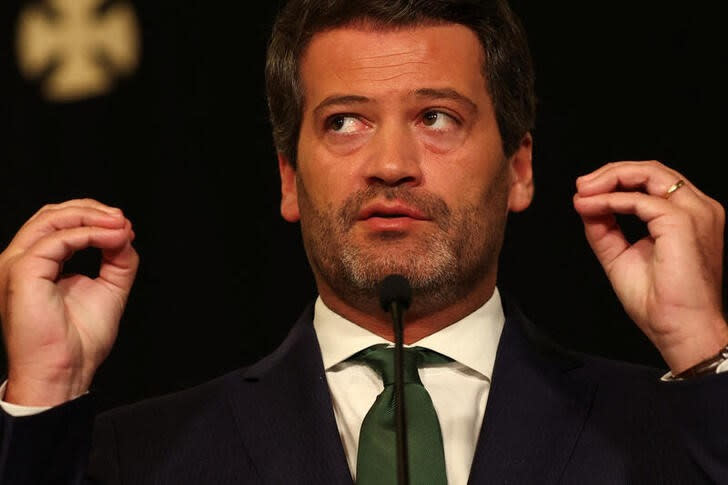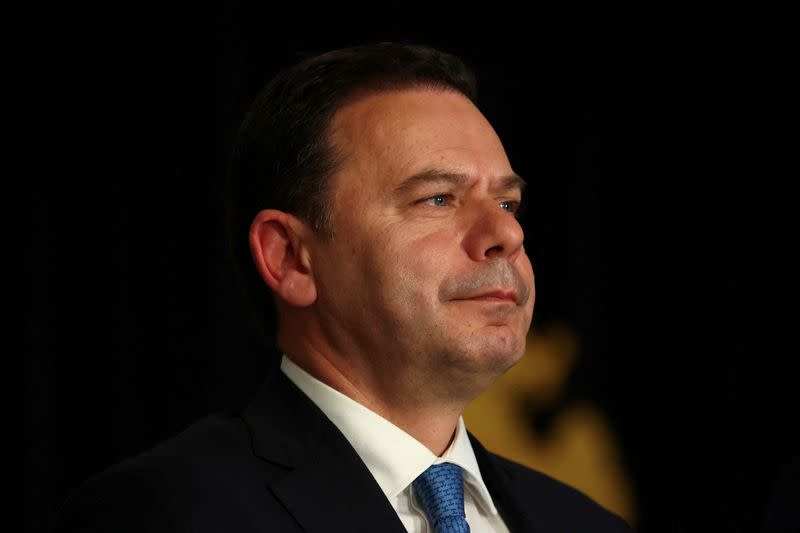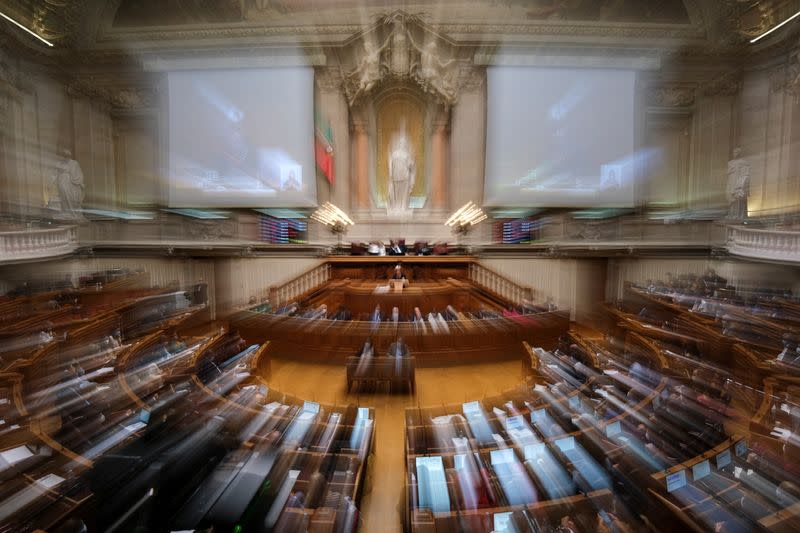Portugal's parliament elects speaker after impasse, instability looms
By Catarina Demony and Sergio Goncalves
LISBON (Reuters) -Portugal's fragmented new parliament on Wednesday elected a speaker after three failed votes the previous day underscored the weakness of the centre-right election winner and the growing influence of the far right.
The Democratic Alliance (AD) coalition won the March 10 election by a slim margin over the incumbent Socialists, far short of a working majority. The far-right Chega quadrupled its parliamentary representation, reflecting a political tilt to right-wing populism across Europe.
In a compromise after several delays of the vote on Wednesday, the AD's main Social Democratic Party (PSD) and the opposition Socialists agreed to submit a rotating speakership for the vote.
Lawmakers voted in favour of PSD's Jose Pedro Aguiar Branco assuming the role of speaker first, followed by a Socialist lawmaker in the second half of the four-year legislature, if it lasts that long.
Francisco Assis, who had been proposed as the second speaker, later said the Socialists would pick the right person for the job when the time comes.
Between them, the PSD and the Socialists have 156 seats in the 230-parliament. Aguiar Branco was elected with 160 votes.
The PS said it was a purely an "institutional solution" that did not make both parties partners.
The election, two years ahead of schedule, was called when Socialist premier Antonio Costa resigned in November over an investigation into alleged illegalities in his government's handling of large investment projects.
Under Socialist leadership since 2015, Portugal has grown at solid annual rates above 2%, except for the pandemic-induced slump of 2020, but it remained Western Europe's poorest nation.
It has posted budget surpluses of late, using the cash to slash the public debt and winning praise from Brussels and investors, who do not expect the AD to abandon the path of fiscal prudence. However, it will have to deal with a crippling housing crisis, low wages, sagging healthcare and corruption.
Analysts have anticipated instability for the AD minority government that has just 80 seats and is unlikely to be able to pass legislation without support from Chega, whose leader Andre Ventura has demanded a long-term deal in exchange for support.
AD leader Luis Montenegro, who is due to present his government lineup next week to the president, has repeatedly refused any formal agreement with Chega.
On Monday, Ventura said his party had reached an "understanding" with the AD on electing Aguiar Branco.
However, after several AD members denied the existence of an agreement, its candidate failed to garner enough votes, while Ventura accused the AD of "trampling" on Chega. Two other rounds of voting after the Socialists and Chega presented their own candidates also failed on Tuesday.
After the compromise announced on Wednesday, Ventura said it clearly showed that PSD had chosen its "travel companion" for its mandate and that it now needs to govern with it.
(Reporting by Catarina Demony and Sergio Goncalves; Editing by Andrei Khalip, Nick Macfie and Angus MacSwan)



